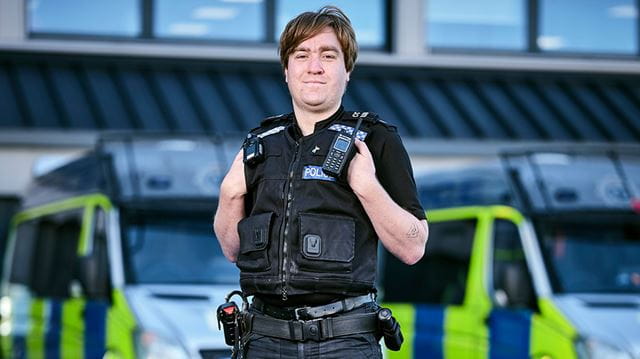
Meet a Boundless hero: Brighton-based PC Andy Chapman, who's a front-line police officer
We chat to Andy about his demanding but rewarding job in his community, and the future of policing in Britain.
I’m a front-line police officer in Brighton, working in the prevention team. My role is a mixture of neighbourhood policing and longer-term project work. In the neighbourhood, we respond to issues that come in during the day, such as concern for vulnerable people or reports of drug dealing, and in the longer term I’m managing projects such as working with the courts to consider conditions on people’s behaviour – with persistent street drinkers, for example. Sometimes you come to work and there’s a big incident that requires every single officer, but other days you can focus a bit more on the medium and long-term project work.
I didn’t grow up wanting to be a police officer. I was finishing my master’s degree at university and considering social work. I knew I didn’t want to end up in a policy job, at a desk – I wanted to be a front-line practitioner. I thought I’d give it a go for a year or so, but I’ve been here for 17 months now and I’m not going anywhere.
Read more about careers in the public sector
Find out more about the role of a Emergency Care Assistant and what it's like to work for the NHS Ambulance Service
What's it like to share parental leave?
Policing in Brighton
After studying in Leicester, I moved to Brighton seven years ago. It’s unique – busier, more diverse and eclectic than the surrounding towns of Worthing, Hastings and Eastbourne. I love its vibrancy, but with that comes issues, such as alcohol. It has a typical array of incidents and crime, but the fact that it’s so diverse means people are less likely to work nine-to-five and only go out at weekends. You’d be surprised by how many people are out at 1am on a Tuesday morning. And we have a very large homeless community, with issues relating to harder drugs of crack cocaine, heroin and spice. Much of our role, working with the local authority and social services, is making sure everyone can live together safely and peacefully.
I consciously make an effort to be visible by being on foot and engaging with the community. But to get to the heart of social problems might require me to build evidence and take people to court, working with the probation team, substance-abuse workers and the courts.
The future of policing
The most rewarding thing is engaging with someone when the last person they want to see is a police officer. But that’s exactly the person they need; you make those difficult decisions for people and over time, you see them look physically more well. It’s great to see the long-term effect of your input.
In the future I think police officers will be practitioners. We’ll specialise in areas such as mental health, so we can respond to situations that are more complex. We do much more around safeguarding than police did 20 years ago, we don’t always need warranted powers and handcuffs. Society needs us to be social practitioners in an organisation that’s available 24/7.




